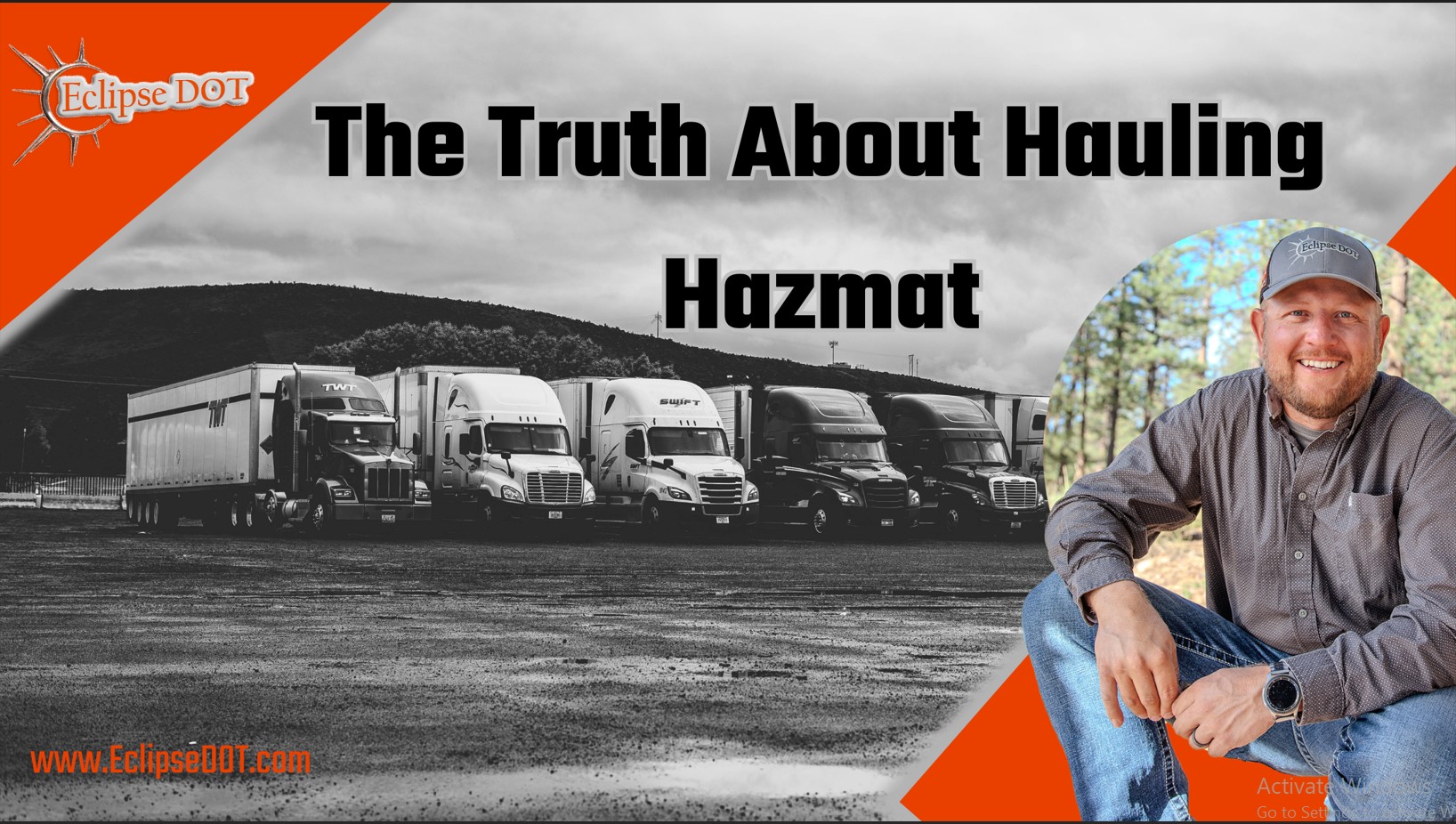Hauling hazardous materials Here’s What You Need to Know
There are several regulations and precautions you should be aware of to ensure safety and compliance.
1. PHMSA Registration:
- You need a registration number with the Pipeline and Hazardous Materials Safety Administration (PHMSA).
- This permit needs annual updates or renewals and can be obtained at PHMSA’s portal.
2. State Permits:
- Some states, like Colorado, may require additional permits for transporting hazardous materials.
3. Class 9 Materials:
- Currently, if you’re only transporting Class 9 hazardous materials, these requirements may not apply, but regulations can change.
4. Essential Equipment:
- Ensure your truck has the following:
- Emergency Response Guide (ERG): accessible from the driver’s side door.
- Bigger Fire Extinguisher: Check FMCSRs for size and rating requirements.
- SD Sheet: Safety Datasheet for the materials being hauled.
- Emergency Contacts: Have an emergency contact information sheet in your truck.
5. Placards:
- All vehicles transporting hazmats must display placards on all four sides to inform emergency responders.
6. Shipping Documents:
- Maintain accurate shipping documents, especially for Hazmat loads, tracking pickups, and drop-offs.
7. HazMat Training:
- All employees working with hazardous materials should receive HazMat awareness training every three years.
- New hires should undergo initial training to understand company procedures and expectations regarding Hazmat.
8. Site Security Plans:
- Implement site security plans, especially if hazardous materials are stored on your premises.
- Clearly outline safety measures during transportation and at your facility.
Discover our CDL & DOT Compliance blog for an exclusive trial at DOTDocs.com. Also, claim your FREE micro audit at THE ECLIPSE DOT MICRO AUDIT. Ready for smoother operations?


